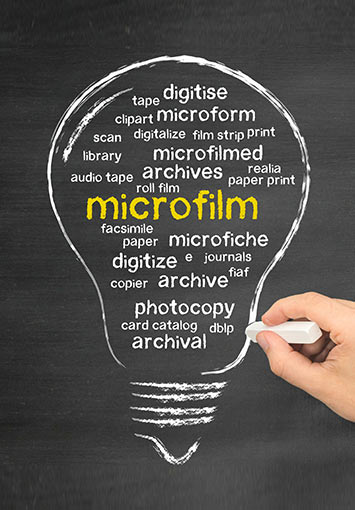Article Category
Records Management Strategies
Learn about best practices, tips, and tricks to help your organization simplify the creation, maintenance, and disposal of records.
Scanning photos is a great way to preserve cherished memories and document family history. For many people, photo albums hold decades of captured moments, and gathering around them to relive these memories has long been a shared tradition. But as we all know, photographs don’t last forever. They fade, can be easily damaged by water
For most businesses, collecting and managing personal information is just part of the job. Customers often share their details and do so for a variety of reasons, trusting that this information will be kept private and managed responsibly. Yet, the rules around classifying this data can be complex, and it’s not always clear what type
When it comes to storing documents in a compact, durable format, microfiche and microfilm have been the go-to choice for records storage for decades. Government agencies, museums, and libraries have relied on these formats for years, using them to archive everything from historical documents to public records. It’s also not unusual for individuals to have
Keeping records accurate and up to date can be challenging, especially for businesses still relying on paper files. Physical documents can easily become disorganized, leaving your team buried under paperwork, which makes it difficult to track updates and maintain consistency across your records. This disorganization can quickly lead to confusion. Even a single missing or
Savvy business owners are always looking for new ways to save money and increase their bottom line. But in the quest to trim the fat, many overlook the potential savings that can come from modernizing their business’s record-keeping practices. And honestly, that’s not surprising. Record-keeping is typically seen as a mundane necessity, a side effect
Managing medical records has always been a challenge for healthcare providers, but the shift towards paperless recordkeeping is greatly simplifying the process. With many practices moving away from traditional paper recordkeeping, Electronic Medical Record (EMR) systems are becoming the new standard, offering streamlined management of patient charts, improved accuracy in documentation, and enhanced accessibility to
HIPAA is a law that almost everyone has heard of, but not many outside of the healthcare industry fully understand. While most people know it’s meant to protect personal information, the specifics of what it actually protects—and how—are often unclear. In this article, we’ll explain what HIPAA is, why it was created, and how it
When dealing with sensitive personal information, there’s no room for error. Business owners are responsible with protecting this data, whether it’s financial records, health information, or legal paperwork. A single mistake, such as losing a document containing someone’s personally identifiable information (PII) can lead to serious consequences, potentially exposing your business to data breaches, legal
In the healthcare industry, effective records management can be the difference between chaos and clarity, inefficiency and excellence, vulnerability and security. Healthcare organizations are tasked with handling an overwhelming number of records—from patient medical histories, test results, and treatment plans, to insurance information, billing records, and even staff employment data. However, the management of these
In the healthcare industry, maintaining accurate, complete, and secure records is critical. Medical practices need to manage a wide variety of records, including patient charts, employment documents, financial statements, insurance forms, and more. However, the sheer volume and variety of documents that need to be managed can be challenging, each governed by its own set









